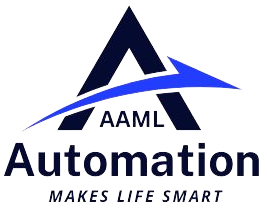10 Essential Best Practices for Maximizing Security in Industrial Process Automation: A Comprehensive Guide for Nigeria’s Emerging Economy

ALL AUTOMATION STORE
Industrial process automation plays a crucial role in boosting productivity and efficiency in Nigeria’s emerging economy. However, with the increasing reliance on automation, there is a growing concern for the security of these systems. To mitigate the risks and ensure the smooth operation of industrial processes, it is essential to implement best practices for maximizing security. This my comprehensive guide explores the ten essential best practices that every organization should adopt to safeguard their industrial process automation systems, from carefully selecting personnel, equipment and spares to establishing strong security protocols. Whether you are a equipment manufacturer, production Manager, Engineering Manager, Facility Manager Industrial Spares buyer, or Automation Engineer/Managers or Industrial Store Managers, this guide is a must-read for anyone involved in industrial process automation in Nigeria.
Industrial process automation plays a crucial role in Nigeria’s emerging economy, improving efficiency and productivity across various industries. However, with this increased reliance on automation comes the need for robust security measures to safeguard against potential threats and vulnerabilities. In this comprehensive guide, we will outline ten essential best practices for maximizing security in industrial process automation.
1. Develop a Security Policy: Establishing a clear security policy is the first step towards creating a secure automation environment. This policy should define roles and responsibilities, establish guidelines for access control, and outline procedures for incident response and recovery.
2. Conduct Risk Assessments: Regularly assess the potential risks and vulnerabilities within your automation systems. Identify critical assets, evaluate potential threats, and implement appropriate controls to mitigate these risks.
3. Implement Strong Authentication: Utilize strong authentication methods, such as multifactor authentication, to ensure that only authorized personnel can access and modify automation systems. This reduces the risk of unauthorized access and data breaches.
4. Employ Secure Network Architecture: Implement a secure network architecture that separates automation systems from other networks, such as corporate or guest networks. Use firewalls, intrusion detection systems, and virtual private networks to protect against unauthorized access and network attacks.
5. Regularly Update and Patch Systems: Keep your automation systems up to date with the latest security patches and updates. Regularly monitor vendor websites for security advisories and promptly apply patches to address any known vulnerabilities.
6. Encrypt Data: Protect sensitive data by implementing encryption techniques. Data encryption ensures that even if unauthorized access occurs, the data remains unintelligible and useless to the attacker.
7. Monitor and Audit System Activity: Implement monitoring and auditing tools to track system activity and detect any suspicious behavior. Regularly review logs and investigate any anomalies to mitigate potential security breaches.
8. Establish Proper Access Controls: Limit access to automation systems to only those personnel who require it for their job responsibilities. Implement role-based access controls to ensure that individuals have the appropriate level of access based on their roles and responsibilities.
9. Conduct Regular Security Training: Educate all personnel involved in industrial process automation on security best practices. Regularly conduct training sessions to raise awareness of potential threats, social engineering tactics, and other security risks.
10. Regularly Test and Validate Security Measures: Continuously assess the effectiveness of your security measures through regular penetration testing and vulnerability assessments. This will help identify any weaknesses or vulnerabilities that need to be addressed.
By following these essential best practices, you can significantly enhance security in industrial process automation and protect critical infrastructure in Nigeria’s emerging economy.




